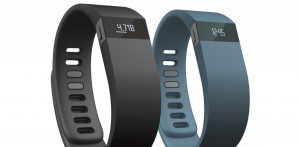 Technology has led to a series of inventions which has helped improve the livelihood of consumers. One great invention is the wearable technology. Wearable devices are gadgets that people wear that track health and fitness information amongst other things.
Technology has led to a series of inventions which has helped improve the livelihood of consumers. One great invention is the wearable technology. Wearable devices are gadgets that people wear that track health and fitness information amongst other things.
The wearables market has been on an upward growth over the years. The estimated increase is roughly 18% annually. According to the International Data Corporation (IDC), they have a projection of growth in shipments from 113 million to over 220 million by 2021.
In International Data Corporation’s view, wristbands that are sourced from Fitbit have become as smartwatches are arguably one of the bestselling in the industry. Fitbit came up with its first ever wearable in 2009. Their primary focus is on activity tracking. Competition keeps getting stiffer and stiffer as more companies get into wearables. Each of them wants a piece of the pie. The companies are getting more creative as they concentrate on the cellular connectivity.
According to Ramon Llamas who is in charge of research at IDC, says that more improvements will come along. The wearables will be multifunctional: from health and fitness to communication and so on. Such innovation will push the current wearables to have mandatory upgrades to match up; the higher the competition, the more the products. The advantage is that with such, people will be able to shop around for affordable products that meet their preferences.
Another project expected to increase is the earwear wearables which are expected to grow to 11 million by 2021 in shipment. Even as people are getting into this venture, Adidas recently announced that it was opting out. However, they have a deal with Fitbit. Therefore, they are not venturing out of business altogether.
For startups looking to venture into this industry, it’s essential to ensure that your finances are in order. In case your credit is damaged, you can always contact a credit repair company that will help you work towards improving the credit rating. You can get more information here.
The invention behind wearables has seen companies come up with devices that focus on data collection from an individual. Such data could be the heart rate, the blood pressure, the number of steps taken and so forth.
One improvement expected in this sector is data analysis. Most of the wearable gadgets in the health sector only collect data. These advanced gadgets are yet to be invented that can be used to make decisions on an individual’s health status.
According to Dr Bill Byrom who is the director heading product innovation at ICON, he believes one of the challenges of wearable gadgets on clinical trials is verification of the data collected. He says that the devices will need to have a high accuracy rate for it to be in use. The tech advancements are to watch out for in 2018.
